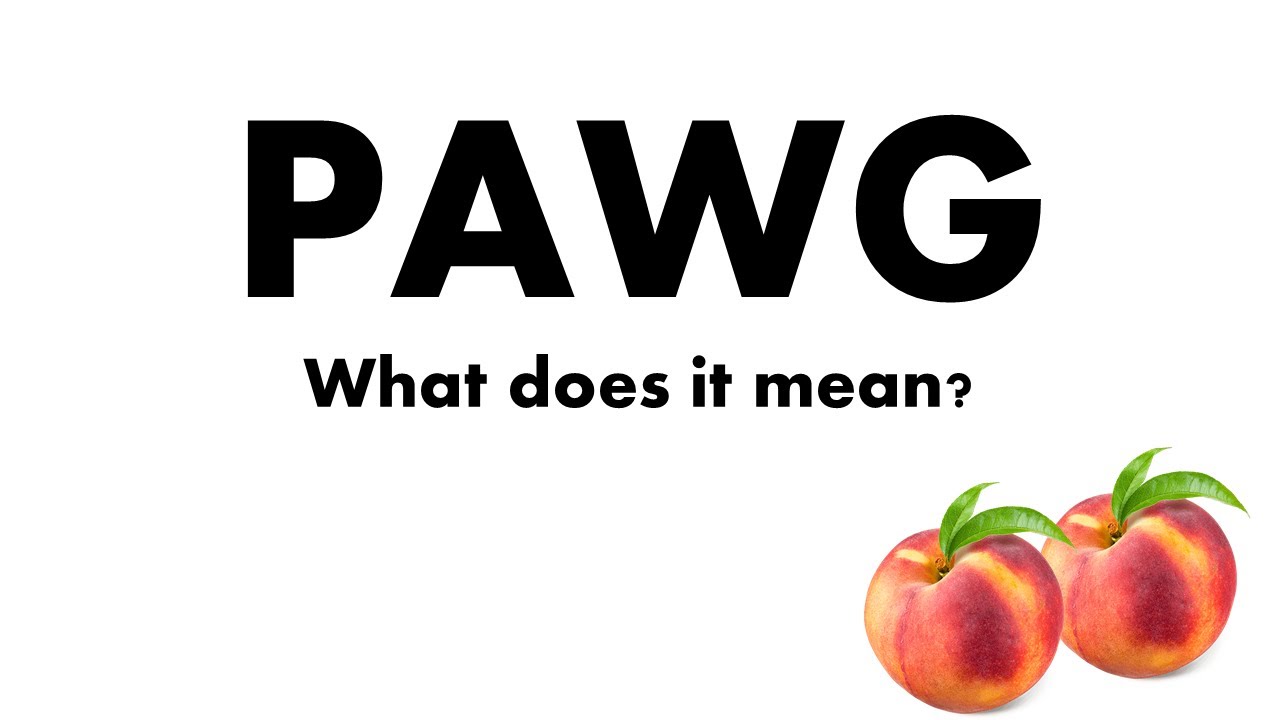
The Origins and Appropriateness of the Term PAWG: Unraveling the Mystery Behind the Acronym
In the ever-evolving landscape of internet culture and slang, acronyms often emerge that leave many scratching their heads. One such term that has gained popularity in recent years is PAWG. But what does PAWG mean, and where does it come from? Moreover, is it appropriate to use in professional settings, such as work emails? In this article, we will explore the origins of the acronym PAWG, delve into its meaning, and discuss whether it has a place in the workplace.
The Meaning of PAWG
PAWG is an acronym that stands for “Phat Ass White Girl” or “Phat A** White Girl.” The term is colloquially used to describe women who are perceived to have voluptuous or curvaceous buttocks. It gained prominence in internet slang and is often associated with memes, social media, and adult content. The use of the word “phat” is a playful and informal way of saying “fat” but in a positive and appreciative manner, emphasizing the person’s curvy figure.
Origins of PAWG
While the exact origin of PAWG is difficult to pinpoint, it became more widespread in the early 2000s within online forums and communities. The term likely evolved from a combination of internet culture, hip-hop slang, and the desire for a catchy and memorable phrase to describe a specific physical attribute. Over time, PAWG found its way into various corners of the internet, becoming a part of the lexicon used by younger generations.
The Evolution of Internet Slang
PAWG is just one example of how internet slang continually evolves. As online communities form and language adapts to fit the context of the digital world, new words and acronyms emerge. These terms often reflect societal trends, humor, and the need for concise communication in the fast-paced online environment. Understanding the evolution of such slang is crucial in navigating the ever-changing landscape of internet culture.
Can I use PAWG in work Emails?
While PAWG has found a place in internet culture, its appropriateness in professional settings, such as work emails, is highly questionable. The term is inherently sexual in nature and may be considered offensive or inappropriate in many workplaces. Using such slang can lead to misunderstandings, discomfort, and potential HR issues.
In a professional context, it’s crucial to prioritize clear and respectful communication. Using terms like PAWG, which are rooted in discussions of physical attributes and can be perceived as objectifying, goes against the norms of workplace etiquette. It’s important to remember that what may be acceptable in certain online communities may not be suitable for the professional environment.
Navigating Professional Communication
When communicating in a professional setting, it’s advisable to use a more formal and neutral language. The use of slang, especially that which carries explicit or suggestive connotations, is generally discouraged. Maintaining a level of professionalism in emails, meetings, and other work-related interactions fosters a respectful and inclusive work environment.
If uncertain about the appropriateness of certain terms or expressions, it’s always best to err on the side of caution. When in doubt, choose words that are universally understood and unlikely to cause discomfort or confusion among colleagues.
Addressing Workplace Culture
As workplace cultures differ, so too do the standards for communication. Some organizations may adopt a more relaxed and informal approach, allowing for a certain degree of casual language. However, it’s essential to gauge the norms and expectations within your specific workplace before incorporating any slang or informal language.
If in doubt, consider seeking guidance from company policies or consulting with colleagues or supervisors. Open communication about workplace expectations can help create a more comfortable and inclusive environment for everyone.
Conclusion
In the realm of internet slang, acronyms like PAWG have emerged, reflecting the dynamic nature of online communication. While these terms may have a place in certain internet communities, it’s crucial to exercise caution when considering their use in professional settings. PAWG, with its explicit connotations, is generally not appropriate for work emails or other workplace communication.
Navigating the balance between online culture and professional communication requires an understanding of context and audience. By prioritizing clear and respectful language, individuals can contribute to a positive and inclusive workplace environment. As language continues to evolve, it’s essential to remain mindful of the impact our words may have on those around us, both online and in the professional sphere.



